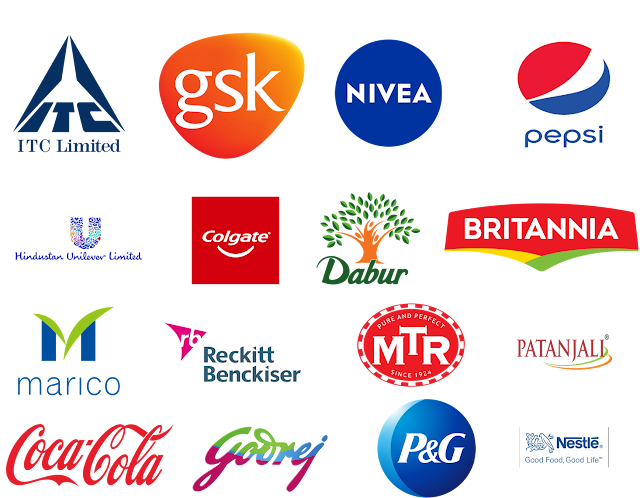A Comprehensive Guide to Starting an FMCG Distribution Business in India: Strategies to Succeed in a Competitive Market
Fast Moving Consumer Goods (FMCG) form an essential part of everyday life for consumers in India, making the FMCG distribution sector a lucrative and promising venture. The rapidly growing population, rising income levels, and changing consumer preferences provide ample opportunities for entrepreneurs to establish successful FMCG distribution businesses. This article aims to provide a detailed step-by-step guide on how to start an FMCG distribution business in India, covering the requirements, investments, infrastructure, go-to-market strategies, and ways to beat the competition.
 |
| Popular FMCG Companies in India |
Market Research and Understanding the Industry:
Before venturing into the FMCG distribution sector, conduct thorough market research to identify potential opportunities, demand patterns, and consumer preferences. Understand the dynamics of the FMCG industry, key players, and distribution channels to get insights into the market's current landscape.
Legal and Regulatory Requirements:
Register your FMCG distribution business as a legal entity, such as a Private Limited Company or a Limited Liability Partnership (LLP). Obtain all necessary licenses and permits, including GST registration, trade licenses, and local municipal clearances.
Investment Planning:
Determine the scale and scope of your FMCG distribution business and create a comprehensive business plan. Allocate funds for the initial investment, working capital, logistics, technology, and marketing. Seek financial assistance from banks or investors if required.
Infrastructure and Warehouse Setup:
Choosing the right location for your warehouse is critical to ensure smooth distribution operations. Consider proximity to major transportation hubs and target markets. Invest in modern warehousing facilities with proper storage, handling equipment, and safety measures.
Supply Chain Management:
Develop a robust supply chain to ensure timely procurement of FMCG products from manufacturers and prompt delivery to retailers. Establish strong relationships with suppliers and negotiate favorable terms to maintain a competitive edge.
Go-to-Market Strategies:
a. Brand Selection: Identify popular and trusted FMCG brands to distribute, catering to the demands of your target market.
b. Retailer Network: Build a network of retailers by offering attractive incentives, credit terms, and after-sales support to enhance loyalty.
c. Direct Distribution vs. Indirect Distribution: Evaluate the pros and cons of direct and indirect distribution models to determine the most suitable approach for your business.
d. Sales Team: Recruit and train a dedicated sales team to effectively promote and distribute products to retailers.
e. Digital Presence: Establish an online presence through a website or social media platforms like Whatsapp to reach a wider audience and showcase your product portfolio.
Inventory Management:
Efficiently manage inventory levels to prevent stockouts and overstocking. Adopt inventory management software to track sales, forecast demand, and optimize stock replenishment.
Marketing and Promotions:
Implement targeted marketing campaigns to create brand awareness and generate demand. Offer promotional schemes and discounts to attract retailers and end consumers.
Customer Service:
Providing excellent customer service is crucial in building lasting relationships with retailers and consumers. Address any complaints or issues promptly and ensure a hassle-free buying experience.
Conclusion:
Starting an FMCG distribution business in India requires meticulous planning, sound infrastructure, and effective go-to-market strategies. By conducting thorough market research, complying with legal requirements, and adopting innovative approaches, entrepreneurs can succeed in this competitive landscape. The key to sustained success lies in maintaining strong supplier relationships, efficient supply chain management, and delivering exceptional customer service. With dedication and perseverance, aspiring entrepreneurs can thrive in the ever-expanding FMCG distribution market in India.



Comments
Post a Comment